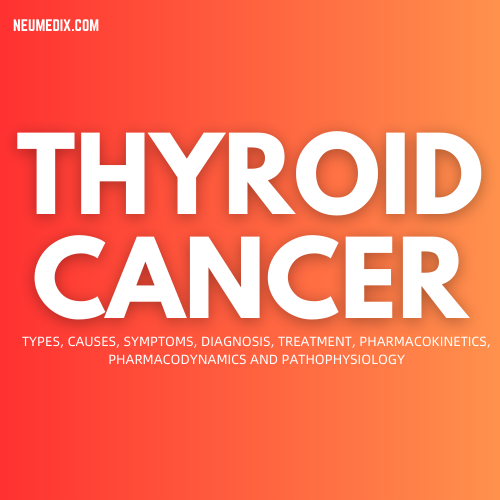1. Introduction to Thyroid Cancer: Thyroid cancer is a type of cancer that begins in the thyroid gland, a butterfly-shaped gland located at the base of the neck. The thyroid gland produces hormones that regulate metabolism and other essential bodily functions. Thyroid cancer is relatively rare compared to other types of cancer but is generally treatable when diagnosed early.
2. Types of Thyroid Cancer:
- Papillary Thyroid Cancer: The most common type, accounting for about 80% of thyroid cancer cases. It usually grows slowly and tends to affect people of all ages, including children.
- Follicular Thyroid Cancer: Accounting for about 10% of cases, follicular thyroid cancer also grows slowly and typically affects older adults.
- Medullary Thyroid Cancer: This type accounts for about 5-10% of cases and originates from the C cells of the thyroid gland, which produce calcitonin hormone.
- Anaplastic Thyroid Cancer: The most aggressive type, but also the rarest, accounting for about 1-2% of cases. It tends to grow and spread quickly.
3. Symptoms of Thyroid Cancer:
- A lump or swelling in the neck
- Changes in voice, such as hoarseness
- Difficulty swallowing
- Pain in the neck or throat
- Swollen lymph nodes in the neck
4. Causes and Risk Factors:
- Exposure to radiation, especially during childhood, increases the risk of thyroid cancer.
- Family history of thyroid cancer or certain genetic conditions, such as familial medullary thyroid cancer or multiple endocrine neoplasia (MEN) syndromes, can predispose individuals to the disease.
- Gender and age also play a role, with women and older individuals being at higher risk.
5. Diagnosis of Thyroid Cancer:
- Physical Examination: A healthcare provider may perform a neck examination to check for any lumps or abnormalities.
- Imaging Tests: Ultrasound, CT scan, or MRI can help visualize the thyroid gland and detect any suspicious nodules or masses.
- Biopsy: A fine-needle aspiration biopsy is often performed to collect a sample of cells from the thyroid nodule for examination under a microscope to determine if cancer is present.
6. Pharmacokinetics (PK) and Pharmacodynamics (PD) of Thyroid Cancer Treatment:
- Surgery: The main treatment for thyroid cancer is typically surgery to remove part or all of the thyroid gland (thyroidectomy). The extent of surgery depends on the type and stage of cancer.
- Radioactive Iodine Therapy: After surgery, radioactive iodine may be used to destroy any remaining thyroid tissue or cancer cells.
- Thyroid Hormone Therapy: Thyroid hormone replacement therapy is often prescribed after surgery to replace the hormone produced by the thyroid gland and to suppress the production of thyroid-stimulating hormone (TSH), which can stimulate the growth of any remaining cancer cells.
- Targeted Therapy: In cases of advanced or metastatic thyroid cancer, targeted therapy drugs may be used to inhibit specific molecular pathways involved in cancer growth and spread.
7. Pathophysiology of Thyroid Cancer:
- Thyroid cancer develops when normal thyroid cells undergo genetic mutations that cause them to grow and multiply uncontrollably, forming a tumor.
- The exact cause of these genetic mutations is often unclear but may be influenced by factors such as radiation exposure, genetic predisposition, or environmental factors.
8. Conclusion: Thyroid cancer is a relatively rare but treatable type of cancer that originates in the thyroid gland. Early detection and diagnosis are key to successful treatment outcomes. Treatment options may include surgery, radioactive iodine therapy, thyroid hormone therapy, and targeted therapy, depending on the type and stage of cancer. With appropriate treatment and follow-up care, many individuals with thyroid cancer can achieve a good prognosis and quality of life. Regular monitoring and surveillance are important to detect any recurrence or progression of the disease.




